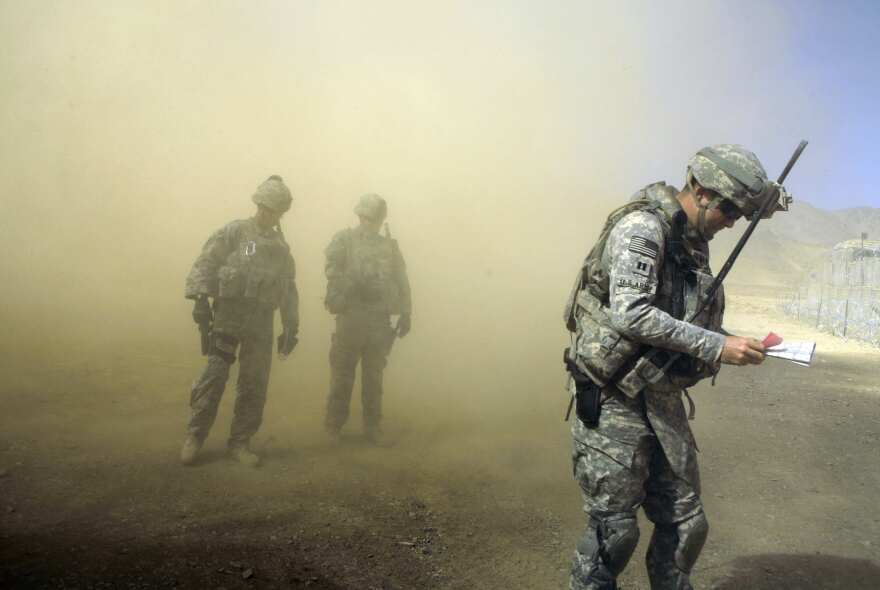Maine veterans of the Afghanistan war are cycling through a range of thoughts and emotions as they watch the conflict's chaotic ending.
Like many Maine vets, Travis Horr says he wasn't surprised that the Taliban would take over the country once U.S. forces were gone. But the speed of the U.S.-backed government's collapse, and the ensuing chaos, he says, are tragic.
"And seeing the Taliban take back, at this point, the entire country. It's just very, very sad and my heart breaks for the Afghan people. And it just kind of leaves you wondering, as a veteran, what was our role and what was it all for?" he says.
A New Gloucester native, Horr is now chief lobbyist for a group called the Iraq and Afghanistan Veterans of America, in Washington, D.C.
In 2010 and 2011 he was a Marine Corps infantryman deployed to a forward position in the Helmand region, where he worked to train and develop trust with Afghan forces.
He was there when Osama Bin Laden was killed.
"I remember asking my higher-ups, 'OK, is the war over? What does this mean in the grand scheme of things?' Now that Osama Bin Laden is killed, we all kind believed that was the reason behind going to Afghanistan and that it made sense that once that mission was over, to leave Afghanistan — at least the military mission was over," he says, "and here we are a decade later."
More than 2,000 Americans died in the two-decade conflict, including some 20 Mainers.
"Whether we did this five years ago or five years from now, I think the end result would be the same, because Afghanistan is a very tribal country," says Sanford native Adam Cote, who served in three overseas wars — Bosnia, Iraq and, in 2013 and 2014, as a company commander in the Maine National Guard's 133rd Engineering Battalion, deployed to Bagram Air Base.
Now an energy lawyer, Cote says that after seeing Iraqi villages he had known overrun by Isis forces, his previous assumptions about the inevitability of success for U.S. military campaigns, including in Afghanistan, began to fade.
"I'm proud of what I did and all the soldiers all should feel the same way, proud of what they did and the work that they did," he says. "But that whole feeling of, 'Wow we're going to completely transform and do amazing things so this country is going to be a success,' I sort of lost the illusion that my deployments were going to do that a while ago."
Cote says the chief lesson the American military should learn is that it needs to better account for the importance of local culture, such as the Afghan people's long history of resistance to centralized governance.
His commanding officer in Afghanistan, Brig. Gen. Dean Preston, says troops do need advance training on the cultures of the regions where they are deployed.
"Recognizing how deep that culture is, and how much time it takes to change that what they know. Lack of a better word, that's foreign to us. They're over there in Afghanistan and we really can't comprehend that. We can't comprehend what they've gone through and for how long," he says.
Still in active service as land component commander for the Maine National Guard, Preston says that the challenges of the country's makeup contributed to the length of the drawdown. He says that vets and their families should know that their sacrifices were not for a lost cause.
"The fact is we haven't seen another 9/11 and al-Qaida is — we've squeezed them and pushed them and we've suppressed them — and all this equals a success in my opinion. And from a counterterrorism point of view, Americans are safer. They are safe," he says.
One thing all of the soldiers and vets interviewed agreed on was that the suffering American allies in Afghanistan may endure in coming days is heartbreaking. Horr says he hopes that refugees who make it out will be welcomed with open arms to America, and to Maine.


